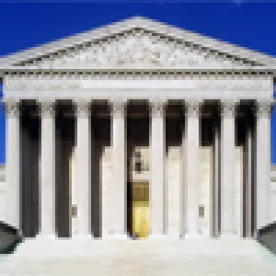On January 13, 2017, the United States Supreme Court granted certiorari to hear three cases involving the enforceability of arbitration agreements that contain class action waivers.
Whether such agreements are enforceable has been a hotly contested issue for several years now, particularly in cases involving wage-hour disputes.

The Fifth Circuit has held that such waivers can be enforceable (NLRB v. Murphy Oil, Inc.), joining the Second and Eighth Circuits in that conclusion. The Seventh (Epic Systems, Inc. v. Lewis) and Ninth Circuits (Ernst & Young LLP v. Morris) have held that they are not, determining that they violate employees’ rights to engage in collective activities under the National Labor Relations Act.
Barring the failure to confirm a new Supreme Court Justice to fill the vacant seat before the cases are argued — which could well result in a 4-4 tie — the Supreme Court’s decision to hear the Murphy Oil, Epic Systems and Ernst & Young cases would seem likely to resolve the current dispute between the Circuits regarding the enforceability of those waivers. And it would provide some much-needed guidance to employers across the country.
Whether a ninth Supreme Court Justice will be seated in time to hear the cases is questionable, though. It is possible that the case could be held over until the next term, when a full Court presumably will be seated. If that does not occur, and if a 4-4 tie resulted, the split among the Circuits would remain.
Of course, there are many cases across the country in which parties are currently debating whether class action waivers are enforceable. One would think that most, if not all, of those cases will now be stayed while the courts await the Supreme Court’s ruling.



 />i
/>i

